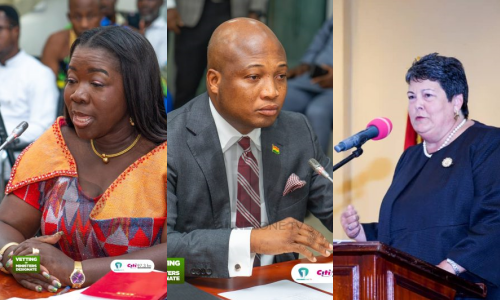The imposition of a 10% universal tariff on imports by the United States government, effective April 5, 2025, has triggered significant concern within Ghana’s government and private sector. This new trade policy, announced via executive order, threatens to disrupt established trade flows and potentially destabilize investment partnerships between the two nations. Ghanaian exporters, particularly those benefitting from preferential trade terms under the African Growth and Opportunity Act (AGOA), are apprehensive about the potential negative impacts on their businesses. The sudden shift in US trade policy necessitates a swift and comprehensive response from the Ghanaian government to mitigate the potential economic fallout. This situation underscores the delicate balance between national interests and global trade dynamics, highlighting the potential for unilateral actions by one country to have far-reaching consequences for its trade partners.
The Ghanaian government, recognizing the gravity of the situation, has initiated a multi-faceted response. High-level officials from key ministries, including Trade, Agribusiness & Industry, Finance, and Foreign Affairs, are slated to meet with the US Ambassador to Ghana on April 7, 2025. This meeting represents a critical diplomatic effort to address the tariffs and seek potential relief. The government has publicly committed to defending Ghana’s economic interests and assuring the private sector that it is actively working to address the situation. This proactive engagement aims to maintain investor confidence and minimize disruptions to the Ghanaian economy. Internal consultations are also underway with industry stakeholders to thoroughly assess the impact of the tariffs on various sectors and formulate appropriate policy responses.
Ghana’s response strategy encompasses both immediate diplomatic engagement and longer-term policy adjustments. The meeting with the US Ambassador is the first step in a diplomatic process aimed at negotiating relief from the tariffs and preserving the long-standing trade relationship between the two countries. Internally, the government is exploring policy options to protect exporters heavily reliant on duty-free access to the US market under AGOA. This could involve seeking alternative markets, providing financial support to affected businesses, or exploring trade diversification strategies to reduce dependence on the US market. Simultaneously, officials are closely monitoring the impact of the tariffs on investor confidence and overall economic stability, prepared to implement additional measures as needed.
The US government’s rationale for the new tariffs centers on concerns about global trade imbalances and national security. While the 10% tariff applies broadly to all imports, certain goods, including copper, pharmaceuticals, and critical minerals, are exempt. This selective exemption suggests a strategic approach by the US, potentially prioritizing access to essential resources while simultaneously addressing broader trade concerns. However, the lack of specific details regarding the national security implications raises questions about the true scope and objectives of the new policy. This lack of clarity further complicates matters for countries like Ghana, who must now navigate the uncertainties of a rapidly changing global trade landscape.
Ghana’s reliance on trade with the US, particularly under the preferential terms of AGOA, makes this situation particularly challenging. AGOA provides duty-free access to the US market for eligible African countries, fostering economic growth and development. The new tariffs undermine the benefits of AGOA and threaten to reverse years of progress in strengthening trade relations between the US and African nations. Ghana’s strategy of engaging in direct diplomatic discussions with the US Ambassador, coupled with internal policy adjustments, demonstrates a proactive approach to mitigating the negative consequences of the tariffs. The government’s commitment to transparency and ongoing communication with stakeholders is crucial for maintaining trust and ensuring a coordinated response to this evolving trade challenge.
The unfolding situation highlights the interconnectedness of global trade and the potential for policy changes in one country to have ripple effects across the world. Ghana’s response serves as a case study in navigating the complexities of international trade relations in an increasingly uncertain environment. The success of Ghana’s diplomatic efforts and the effectiveness of its domestic policy adjustments will be crucial in determining the ultimate impact of the US tariffs on the Ghanaian economy. This situation underscores the need for ongoing dialogue and cooperation between nations to ensure a stable and predictable global trading system that supports sustainable economic growth for all.














